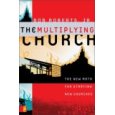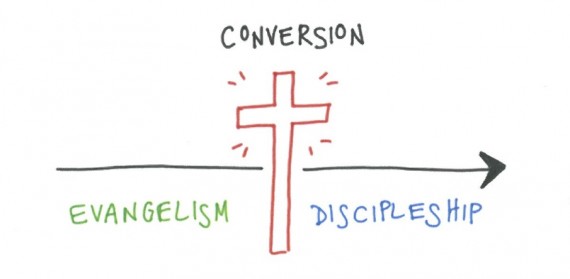 A while back I attending Northwood’s Glocal.net Turbo training conference.
A while back I attending Northwood’s Glocal.net Turbo training conference.
When it comes to church planting, I think Bob Roberts has one of the most profound and yet simple approaches to church planting that exists. Every pastor and church planter should read his books Glocalization and Transformation.
Also, he has a new book out called The Multiplying Church, which I haven’t read yet, but should be good.
 There were so many things that were said in his training which encouraged and challenged me, I cannot relate them all. However, the one that struck me the most was that Bob believes that postmodernism is a thing of the past, and that it was a blip on the screen compared to what is coming…and the church had better be ready.
There were so many things that were said in his training which encouraged and challenged me, I cannot relate them all. However, the one that struck me the most was that Bob believes that postmodernism is a thing of the past, and that it was a blip on the screen compared to what is coming…and the church had better be ready.
 I think he is so right about this. Many ineffective churches, ministries, and Christians will still be writing and speaking against the “evils” of postmodernism for another 20-30 years. Meanwhile, the culture has moved on.
I think he is so right about this. Many ineffective churches, ministries, and Christians will still be writing and speaking against the “evils” of postmodernism for another 20-30 years. Meanwhile, the culture has moved on.
But this is just business as usual with the average church. Churches generally run about 30-40 years behind the culture. And when the church finally crafts a good response to what the culture is going through (whether a church embraces the changes or decry them), the culture isn’t listening anymore, because it is on to something else.
Those who will shape the church of the future will recognize that postmodernism is a dead issue now, and the culture has shifted toward something else. What this “something else” is has yet to be determined. But some of us can see it, sense it, and hear it in the people we interact with. And I agree with Bob Roberts: whatever is coming, it will be the biggest thing to happen to the church since the day of Pentecost. Such change will lead to both the death and the resurrection of the church as we know it.
The way things are today — even in the most innovative and effective churches — is not the way things will be twenty years from now. Will you and your church be ready?









 Yesterday I introduced the
Yesterday I introduced the 
 Today, I will simply introduce in broad brush strokes the two most common methods of making disciples in our churches today.
Today, I will simply introduce in broad brush strokes the two most common methods of making disciples in our churches today. 


 Some days, I’m ashamed to be a Christian.
Some days, I’m ashamed to be a Christian.